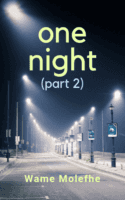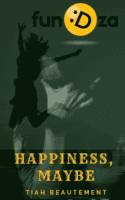An amazing thing happened in South Africa on May 8th, 1996. That’s the date that our world-renowned Constitution was adopted. Why was it praised by forward-thinking activists and democrats around the globe? Because it was anti-racist? Kind of. Because it was anti-sexist and ageist and so on? Kind of. But everyone who believed in equality took it for granted that those old-school prejudices would be listed and outlawed.
No, our ground-breaking Constitution also said no-one could be discriminated against due to their ‘sexual orientation’. We were the first country in the world to include that! https://en.wikipedia.org/wiki/LGBT_rights_in_South_Africa
However, I am Robert and Rebecca shows us how, 24 years later, there are still many South Africans who just cannot get their heads around the fact that humans are not biologically, neatly divided into male and female. Still people who cling to the idea that there are ‘us’ and ‘them’. ‘Us normal, decent people’. And ‘them: abnormal people who choose to be LGBTI* freaks, and we must force them to be straight, like us.’
People do not ‘choose’ to be LGBTI, especially not facing the prejudice that they do in our hostile, ignorant world. They are simply, naturally, born that way.
As Naledi says, when addressing the staff and school: “Most of us are in the right body. A girl is a girl. A boy is a boy.”
Josh then explains: “…Trans people are those who experience their body as the wrong sex. It causes them enormous mental stress,” in our unaccepting world.
Yola explains further: “Trans people show us that gender is not a binary. … There are people in between, and even more genders than that. Also, you do not get to tell a person what gender they are – only that person can tell you.”
I am Robert and Rebecca shows that often this prejudice is due to a generational divide: older people not adapting to rapidly changing values and norms in the world. The Headmaster, Mr Hood, runs his school like a kind of jail, is old fashioned, and closed to new ideas.
Young Miss Emma Comrie soon realises that she shares more values and attitudes with her older pupils than with most of the staff. She says: “At Lakeview High though, I had to accept that a lot of the more out-moded ideas – the email; Mr Hood’s homophobia – were primarily expressed by the older members of the staff.”
Then, the story also picks up on some religions as denying the existence and rights of LGBTI people. Look what Mr Jones implies: that being trans is not respecting God.
“Our school has certain values, Miss Comrie.”
“And what are they?”
“Respect. Respect for the ethos of the school. Respect for your elders. Respect for God.”
I was pretty surprised about this last bit. I knew it was a Christian suburb, and that Mr Jones was in fact a reborn Christian; …
“So this problem you have with Robert – it’s religious?”
What do progressive, modern religions say? This: ‘God made Robert that way; he is a child of God like everyone else.’
The story also gives us a taste of how trans people have to deal with non-acceptance and prejudice everywhere. Think about the mean joke circulated by a teacher, and Miss Comrie calling her out.
If you are bust being a racist or using hate speech these days you will go the notorious way of Penny Sparrow or Vicky Momberg or Velaphi Khumalo* – made to publicly apologise, and even pay a fine or go to jail. But can you think of any case of someone taken to court for insulting someone based on their sexual orientation? However … as you ‘woke’ young people who don’t accept prejudice like this in our country grow up … watch this space!
The story also shows how tricky, how difficult it is to be brave and call out discriminatory behaviour. As teacher Dara says after Miss Comrie has sent her email: “Well, I think you did the right thing,” she continued. “So much of that stuff goes down here, and nobody ever says anything about it.”
Miss Comrie writes down what she wanted to reply:
- What’s stopping you?
- Seriously, why not say something? You’re here, you hear it, why don’t you call it out?
- How can you sit by and let injustice take place?
But I didn’t say any of these things.
I’m not sure why.’
If you have been brought up to be polite, and respect other people, and if you find conflict difficult, it takes energy and bravery and commitment to stand up to injustice and bring about change. It might be you against a crowd; it might be you against older people; or your own family; it might be you against people with authority over you – like a teacher or a preacher.
But the message of this story is that “tolerance is love” and to support this we must ‘find our own voices’. We read how the Grade 12s found an imaginative and bold way of doing it by cross-dressing and making a surprise presentation to the school.
The story also shows how important solidarity, the support of a group, helps. The Grade 12s give each other courage and make a powerful statement that no-one could ignore or forget. And so they win the battle for Robert to be his true, beautiful, trans self and wear a dress to the dance, as Rebecca. Viva!
* LGBTI stands for Lesbian, Gay, Bisexual, Transexual, and Intersex. You may see other letters added to this abbreviation. ‘A’ stands for ‘Asexual’ or Ally (i.e. supportive of the previous groups) and ‘Q’ stands for Questioning (i.e. not sure about myself yet) or Queer, as an umbrella term for all people who are not heterosexual.
* Google any of these names to read about these cases.
*****
Tell us: Some schools now have uniforms that include unisex shirts, shorts and trousers, allow boys to have long hair, and to wear simple jewellery. How do you like this idea, and should a trans guy be allowed to wear a dress or skirt to school?






